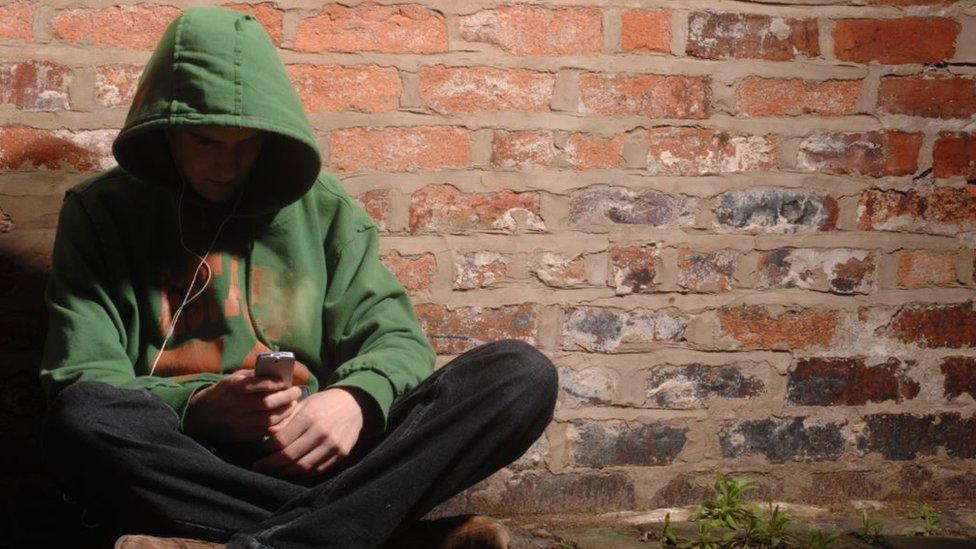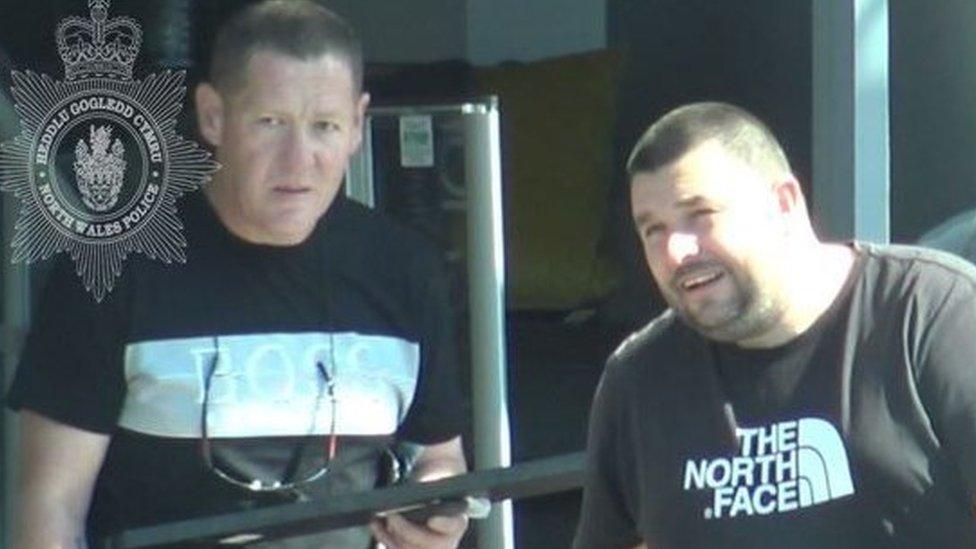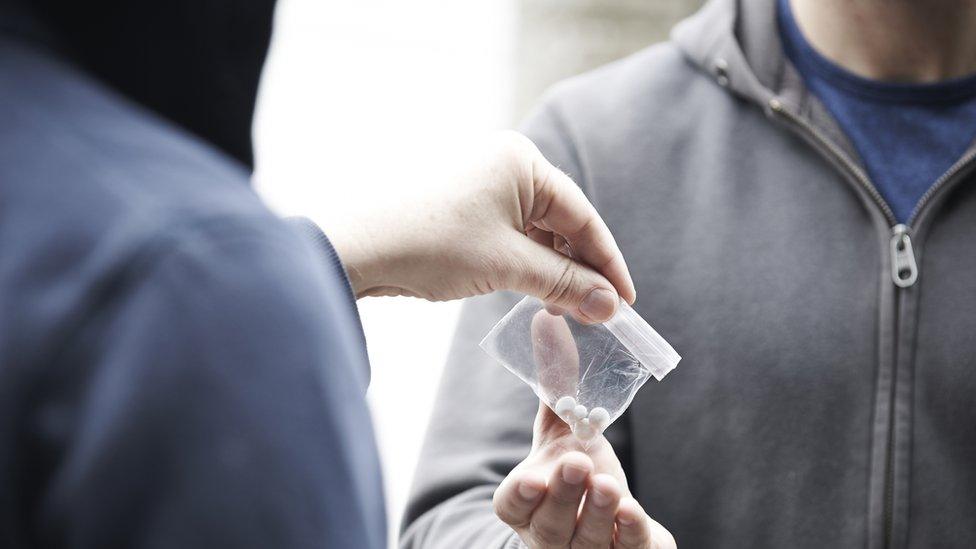Covid: Lockdown 'causing drugs gangs to recruit locally'
- Published

Vulnerable children are often used by so-called "county lines" gangs
"County lines" gangs could be using children in care across north Wales to distribute drugs to get around lockdown restrictions, it is claimed.
The urban gangs use young people to expand their markets for drugs like cocaine and heroin into smaller towns.
But research for the North Wales Police and Crime Commissioner suggests fewer children are being sent from larger cities.
There are also claims some councils have "their heads in the sand".
But the board representing councils, police and probation said it had not been invited to take part in the study.
The research by the crime and justice consultancy Crest Advisory comes as England is in the middle of a month-long national lockdown, with travel restricted between Wales and England.
Travel between the countries was also limited during Wales' recent firebreak lockdown and before that local lockdowns.
"Gangs have had to change their business model," said North Wales Police and Crime Commissioner Arfon Jones
"With the roads being quieter, less people on the trains, it's been easier for the police, British Transport Police, ourselves, to detect people who are coming to north Wales to deal drugs.
"So now what they're doing is trying to recruit children and young people locally and I'm particularly concerned about people in care being recruited to deal county lines."
Crest Advisory conducted interviews with officers from North Wales Police and Merseyside Police, as well as other agencies as part of a wider project looking at county lines and looked-after children.
Joe Calouri, head of policy at Crest, told Welsh language news programme Newyddion that gangs were already having to adapt due to more effective police work, but restrictions on movement during the pandemic had "accelerated" change.
"They've reacted by recruiting local children," he said.
What is "county lines"?
"And because of the use of technology and apps and social media, it's very easy for gangs to recruit children without even meeting them by having peers recruit them and controlling them via social network apps."
The issue of children in care homes - and where they come from - can be complicated.
As well as caring for children and young people from the region, a number of care homes in north Wales provide for out-of-area children, including from larger cities in England.
But local authorities may not know if children from outside the region are placed in their locality alongside local children.
A number of councils in north Wales said they would not have accurate data as it's the responsibility of the placing authority to inform them.
One council said it was "often not informed by placing authorities".
'Ahead of the curve'
Mr Calouri said local authorities did not engage with the research project.
"We have a concern that perhaps local authorities have their heads in the sand slightly on this issue and are still viewing it as a problem from outside rather than a problem that they need to deal with locally and poses a risk to local children," he added.
"Having reviewed their local safeguarding board documents, we don't see much evidence of proactive local planning around the risk or an understanding of what the risks are.
"People in north Wales should be very concerned about the changing threat of county lines.
"Over time we've seen elsewhere in the country how, as gangs start to recruit more locally, and rely less on trafficking children over borders, over time there's a high level of violence, there's post code-style gangs that form and it often results in high level violence and even murder in some situations.
"North Wales have the opportunity to be ahead of the curve in preventing this from happening, but to do that they need to recognise the threat of county lines locally and take action, rather than treating it as a problem that's come in from outside from Merseyside."
In a statement, the North Wales Children's Safeguarding Board, which is made up of local authorities, health board, police and probation, said: "The request to participate with the Crest Research has not formally been presented.
"We hope that police colleagues at the board will take the opportunity to present the research proposal.
"We are aware that work is currently taking place between Wales Government safeguarding and advocacy unit and the heads of service across Wales around considering further amendments to the practice guide."
- Published11 September 2020

- Published16 September 2019

- Published16 May 2018
